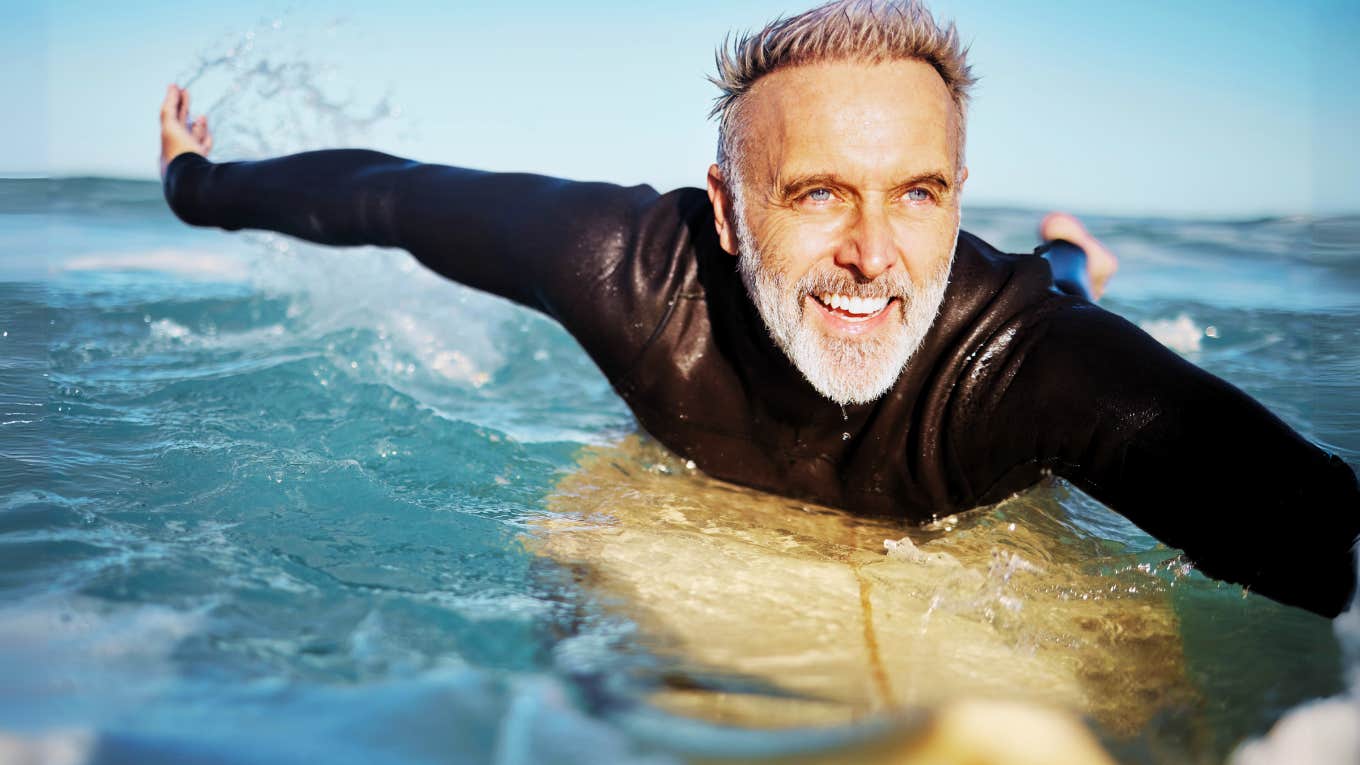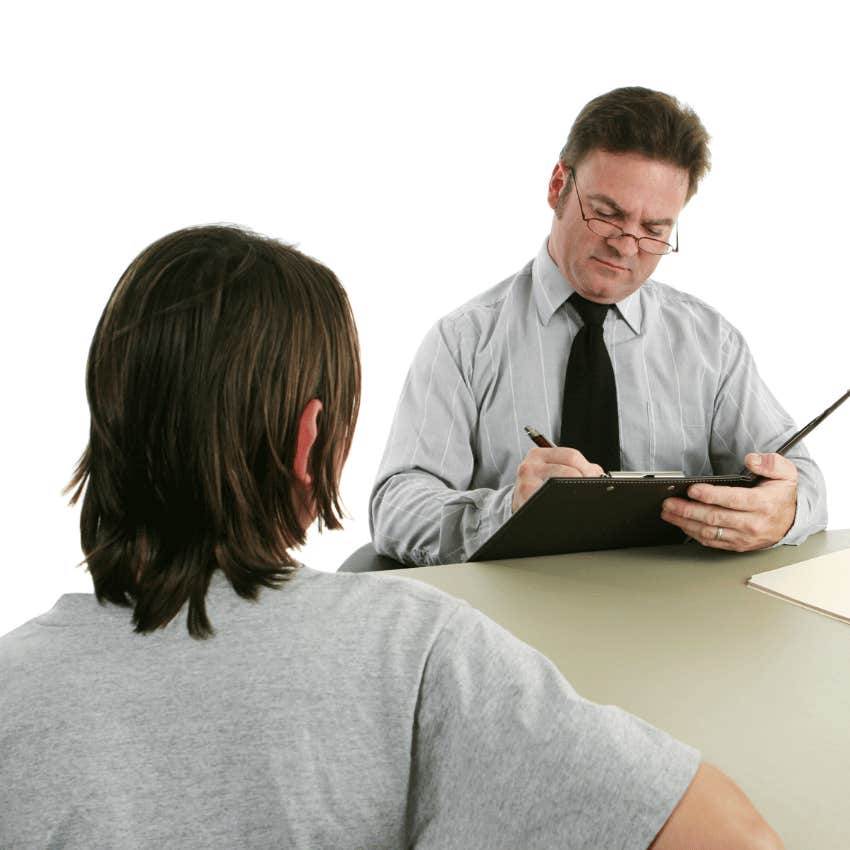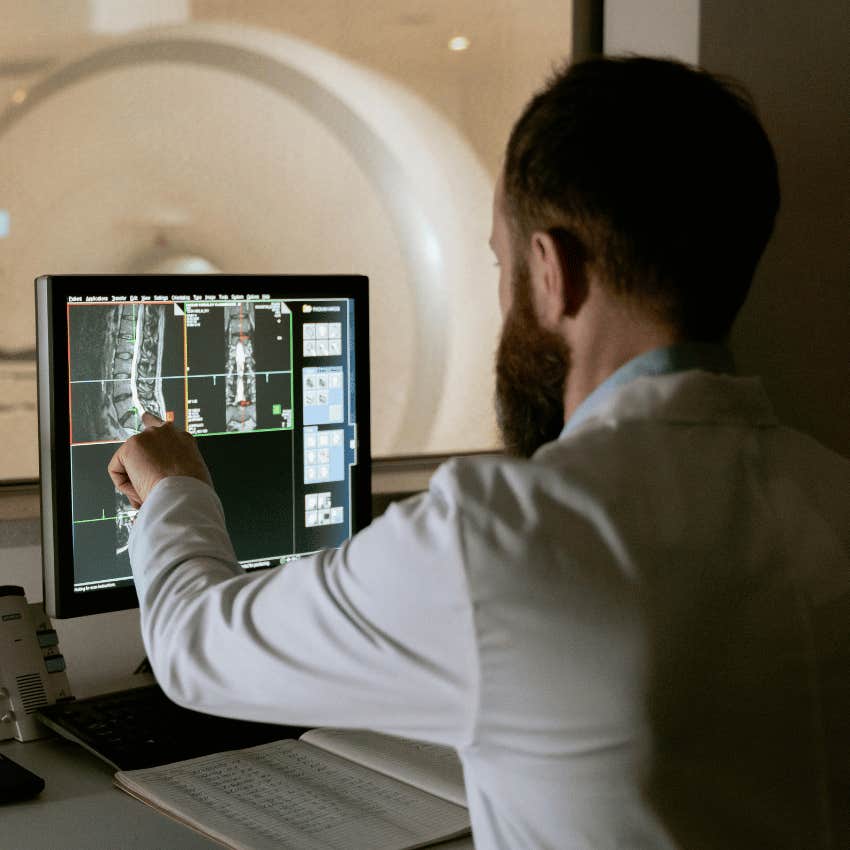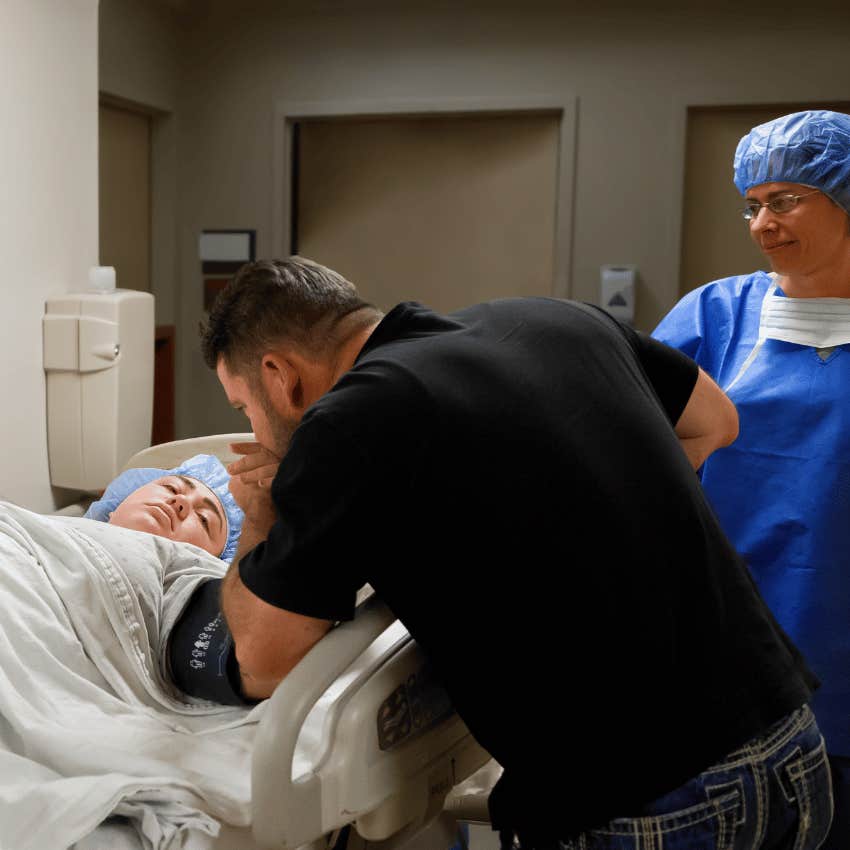The Mysterious Health Issue That Altered The Course Of My Entire Life
I discovered my love for the ocean after a diagnosis altered my young life.
 PeopleImages | Canva
PeopleImages | Canva I used to run and I loved it. When I was seven years old, I watched the very first televised Iron Man on ABC’s Wide World of Sports. The race was broadcast from Hawaii, and after I watched Dave Scott swim, bike, run, and win, I wanted to be a triathlete. It was February 1980 and my young, skinny body started training like Dave.
When I was eight and nine years old, I competed in several marathons and was a long-distance runner in track and field events. Running also helped me escape the various bullies that came after me on the playground and after school. My legs — and using them like a gazelle escaping a leopard — were my salvation.
My legs carried me over the narrow Minnesota farm roads that led to and from the haunted hippie farmhouse where I grew up. Over ice, through rainstorms, battling snow and hail, and against the brutal and constant wind that swept across the flat fields. I ran until I was 14 years old.
Then, I was forced to stop running because a miserably ignorant doctor gave me a terrible triple diagnosis.
 Lisa F. Young | Shutterstock
Lisa F. Young | Shutterstock
He told me I had a heart murmur, scoliosis, and kidney disease, but the foolish quack was wrong about all of it, and I suffered the consequences. The doctor’s ignorance and lack of compassion caused me a lot of pain, but it sent me on a search to end my suffering and discover the joy of the water and the ocean.
It was my freshman year, and I’d just transferred to a new high school. I was an innocent kid with a mullet I’d grown out an inch down my neck to resemble Kurt, the fastest member of our cross-country team. I joined the team that summer and started running with them in advance of the school year to get in shape.
My heroes were all the older runners, and they coached and encouraged me while we ran. One runner might call out, “Hey, Bronson! Lookin’ good, hey!” And Kurt would coach me by saying, “Get on your toes more when you come in for the sprint at the end!”
When summer ended, I needed to get routine tests to let the school know I was healthy enough to run on the team. My birthday had just occurred and classes would begin soon. I was spritely and naive. A round-faced boy, only beginning to gain a chin, and also to recognize girls and the crushes I had on them.
That late summer day, I walked down the concrete campus and into the doctor’s office to get the results of my tests.
“Come in. Sit down, young man,” the bespectacled doctor said. He seemed to have a humped back under his smock, and his hair was parted in one giant lop combed over to cover his bare, white scalp. “I have some news. News you might not like here today now.”
I was alone, and his words came out stilted. Cold. Emotionless. With a dull, aching accent straight from the heart of the Northland.
“Son, you have a bad heart, a bad curve of the spine, and kidney problems. Not good. Not good, all of it. You’re going to have to stop running, And you’re going to need to get more tests. You might need dialysis.”
It was like he was reading a verdict. My death sentence. Then, he handed me a medical document in triplicate. White on top, then pink, and yellow on the bottom page.
He pointed at the document and said, “You’ll need to have your parents sign this. Then, you go follow up with these specialists here. Your parents will do that then, okay?”
I nodded, took the papers, and looked at them. There was my barely legible name on top, and below that, his scrawl read:
Scoliosis. Heart murmur. Probable kidney disease. Diagnostic testing is required. Not permitted to run or exercise.
Under that were various specialists’ names, phone numbers, addresses, check boxes, finger smudges, and a signature. My heart dropped. My blood raced. Anxiety shot through my body like a machine gun was firing from inside my head. Whatever else the mad doctor said didn’t register because I was in shock.
I left the office and trudged to the school bus stop, then I rode home numb and wordless. Quiet in my horror as teenagers flirted and yelled and laughed together.
When I arrived home, I didn’t give the paperwork to my parents. Instead, I went for a run. I laced up my sneakers and started down our quarter-mile driveway that hooked off to pine trees and paved country roads. Dirt crunched under my heels as I pounded each foot in the early evening humidity and heat of late August.
As I usually did, I began to count the telephone poles as I ran past them. I let each pole magnetically pull me toward it, letting each stride take me further away from home thinking maybe I can keep running.
 MART PRODUCTION | Pexels
MART PRODUCTION | Pexels
But I knew I couldn’t run away from this. And I knew I would not get to become like my heroes.
I ran five miles and turned around to go home, but while I was gone, my parents received a call. They didn’t need to receive paperwork from me. The doctor called my school administrators, and they called my parents.
Now, everyone knew about my health issues. When I returned, I was forbidden from running. Testing would soon begin. The tests quickly ruled out scoliosis; my spine had a natural curvature. So, the humped doctor had missed the mark on health issue number one.
Then, tests determined my heart murmur was a sign that I had a very healthy heart instead of the bad heart I’d been diagnosed with. The doctor had misdiagnosed that one in the opposite direction, too.
The problem was my kidneys. Tests confirmed that something was wrong, but they weren’t sure what it was. The words disease and dialysis echoed and pinged in my brain, bouncing like racquetballs through my mind and nerves. Those words made me scared.
My problematic kidneys needed to be tested further in The Cities. The Twin Cities, Minneapolis/St. Paul, where the specialist doctors with the technologically advanced machines were.
Going to the Twin Cities felt like going home when I was a kid. For a strange little hippie child like me raised on carob and government-issued commodity cheese, the city was where I wanted to be. Where the kids dressed cool and there were Target stores everywhere. Suburbs and freeways and Thai food and punk rockers and culture.
But that urban wonder changed rapidly when going to Minneapolis meant entering a laboratory and being prodded and pricked like a lab rat.
My first test was to quaff a large amount of radioactive liquid that tasted like purple Kool-Aid mixed with metal shavings. Then, I was required to sit very still and straight up in front of a large, round, buzzing machine.
While I watched my kidneys and bladder fill up on a green, pixelated computer screen, I desperately needed to pee, but I was forced to stay in one spot for two hours. Then, I was allowed to relieve myself. It was uncomfortable, often excruciating, and embarrassing, and it was a test that I needed to endure over six times.
When the doctors said I needed to collect my urine in a plastic bottle all day, every day, for seven consecutive days, embarrassment became a pattern.
I had to carry a bottle with me to the restroom at school, collect my waste fluids, keep the bottle in my locker, then take it home, and do it again the next day. Making friends and getting a date at my new school became a little more difficult after that.
Several other tests invaded holes, drew blood, caused bleeding, and also caused severe embarrassment, but they always caused fear. Fear that, eventually, they would find something very bad.
 In The Light Photography | Shutterstock
In The Light Photography | Shutterstock
Finally, after a full year of testing and bodily investigating, the doctors determined that I had a birth defect in part of my urinary system. It would require major surgery and eleven days in the hospital, but it was not — and had never been — kidney disease.
Three strikes and the doctor had struck out. He was wrong about everything. A 2022 National Library of Medicine systematic review of diagnostic errors found diagnostic accuracy in the emergency department (ED) is high, but some patients receive incorrect diagnoses (~5.7%). Some of these patients suffer an adverse event because of the incorrect diagnosis (~2.0%), and some of these adverse events are serious (~0.3%).
After the extensive surgery and by the end of my ordeal, I began to suffer from chronic pain. It began in the place where the doctors sliced into my body.
They left a long, ragged scar. And next to it, a swollen, smaller scar where four feet of rubber surgical tubing had been inside and used to drain me of fluids. Because of both scars and the resulting scar tissue, I couldn’t run anymore. The pain was too much. But it didn’t stop me from living life in radiant color. Shimmering green, turquoise blue and foamy white became an essential part of my life. The colors of the ocean.
According to a 2017 study published in the American Journal of Preventive Medicine, living near the coast may positively impact physical health. The study analyzed data from over 48 million people in England and found that those living within a kilometer of the seaside reported better physical health than those living further inland.
Living close to the sea may encourage people to engage in more physical activity, such as walking or swimming, which can have numerous health benefits. Additionally, exposure to the sea air and the sound of waves may have a calming effect on the mind and body, reducing stress levels and promoting relaxation. The study’s findings suggest that living near the coast could be a simple and effective way to improve overall physical health.
As soon as I turned 18, I moved to the West Coast, and there, I found the sea and taught myself to surf. By the age of 26, I was paddling out into beautiful twelve-foot waves at Ocean Beach in San Francisco, catching gorgeous walls of water at Salmon Creek in Sonoma County, and riding long, smooth swells at Steamer Lane in Santa Cruz.
I left the landlocked world of running behind and became a waterman. Living among the elephant seals and otters. Dropping in on waves where dolphins play. Letting kelp pods tickle my feet while I scanned the horizon for the next set.
 alexandre saraiva carniato | Pexels
alexandre saraiva carniato | Pexels
If I had continued to run on the land, I know I wouldn’t have found the wonder of riding the ocean.
For the last seven years, my home has been in the magnificent city of New Orleans. Here, I paddle my stand-up paddleboard down the bayou, through City Park near the ancient oak trees, always keeping my eye out for gators. I swim laps at the University of New Orleans, flip-turning and backstroking and freestyling next to college students.
A 2016 study published in the Journal of Coastal Zone Management investigated the role of coastal livelihood and service ecosystems in human well-being and blue growth. The study found that being near the sea positively impacts physical and mental health.
The researchers examined the connection between well-being and the coastal ecosystem, including the benefits of living near the sea, such as increased physical activity, improved mental health, and enhanced social connections.
And I still surf. Florida is only a couple of hours away, and I celebrated my 50th birthday on Kauai, dropping in on epic waves. I may not be able to run like a gazelle anymore, but I can move through the water like a fish.
My kidney scar is a war wound and a mark of resilience, a reminder of life lived. I tell people it’s a shark bite. When they believe me, I smile.

